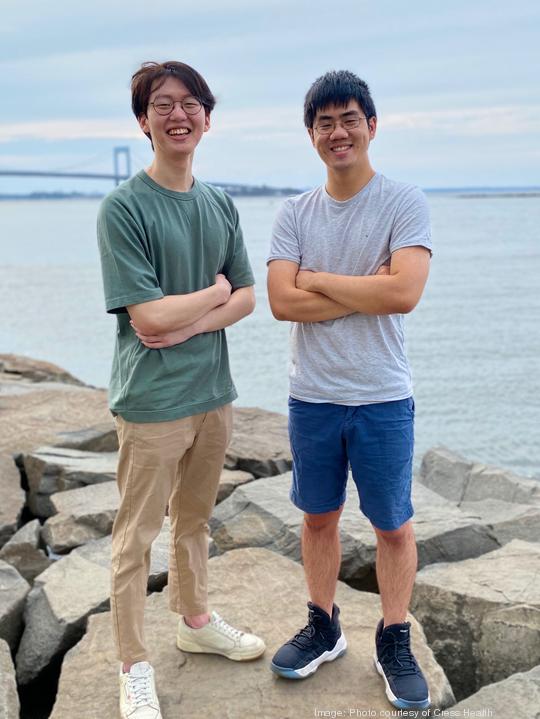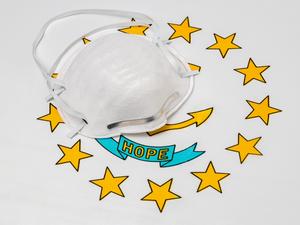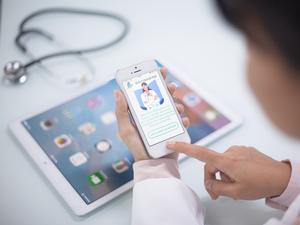
When Justin Kim and Michael Lai launched Cress Health during their sophomore year at Brown University, they built an app that allowed anyone struggling with mental health issues to create their own digital, personalized support groups.
While in development mode, the coronavirus pandemic struck, putting health care workers on the front lines against a threat they never could have imagined. As hospitals became inundated with cases, Kim and Lai, who were both in joint medical programs, heard about the horrors in the hospitals from their friends, mentors and even family members.
The duo wanted to help health care professionals battling the virus right away. They decided to pivot and really focus on the mental health needs of the nurses, clinicians and other health care professionals now risking their lives to save Covid-19 patients.
Kim and Lai transitioned Cress Health into an app that health care professionals could turn to for confidential and convenient mental health support, in an effort to destigmatize and democratize mental wellness care.
“Health care workers right now are facing record levels of emotional stress and trauma, and this is all due to the rapid influx of Covid-19 patients,” Kim told Rhode Island Inno. “There are inhumane levels of grief, trauma and heartbreak, and health care workers are exposed to it on a daily basis, and unfortunately, many have developed post-traumatic stress disorder from this whole experience.”
According to Kim, mental health issues were already prevalent in the health care industry prior to the pandemic. Physicians are at a higher risk for suicide, and scores of health care workers have experienced burnout of some kind due to all the emotional, taxing and stressful events they witness working at hospitals.
Cress Health helps deal with some of these issues by connecting those professionals via anonymous confidential group chats with peers, so they can get the support they need. Kim said this solves three main problems that health care professionals were dealing with prior to the pandemic.
For one, it’s a time-saver, because many health workers didn’t have time to attend in-person mental health meetings with their schedules. It also allows them to speak to people who are probably experiencing similar issues and can actually relate to them, and it erases the stigma many health care workers have about seeking mental health help as a health professionals themselves.
Cress Health also offers mental wellness journaling, so users can keep track of their own personal mental and emotional states and practice mindfulness. Lastly, the app offers personal analytics by tracking a person’s wellness trends; it then uses those analytics to make simple recommendations. If the app notices that someone is more stressed around lunch, for instance, it can recommend snack suggestions that might be better for a person’s mental health.
Kim said the company plans to go to market by partnering with large health care providers and hospital systems, who will then distribute the app to their employees.
Already, Cress Health has struck a pilot partnership with AMITA Health, one of the largest health care systems in Chicago. Kim said that not only is AMITA testing the app with its employees, but it is also helping Kim and Lai further enhance Cress Health. Cress also plans to soon roll out the app to the Rhode Island Medical Society and the medical residents at the Lifespan Health System in Rhode Island.
Kim and Lai are also beginning to take Cress international. The company recently received a Covid-19 grant from the Clinton Foundation's Student Action Fund to accelerate its work.
Cress is using the grant to work closely with the United Nations High Commissioner for Refugees to deliver its app and other mental wellness resources to more than 180,000 refugees in the Kakuma refugee camp that have been impacted by the coronavirus pandemic. The camp is located on the northwestern coast of Kenya.
Cress is also delivering its app and other mental wellness resources to help adolescent youth in Nairobi, Kenya, and to women affected by sexual and gender-based violence in Liberia, as well as the coronavirus.
“Before the pandemic, health care worker suicide was already a silent epidemic,” Kim said. “Looking toward the future, with the second wave predicted to come sometime soon, we really feel this number will dramatically increase, unless, as a society, we really urgently work toward increasing the access and destigmatizing mental health resources for our health care workers.”
Bram Berkowitz is a contributing writer for Rhode Island Inno.





